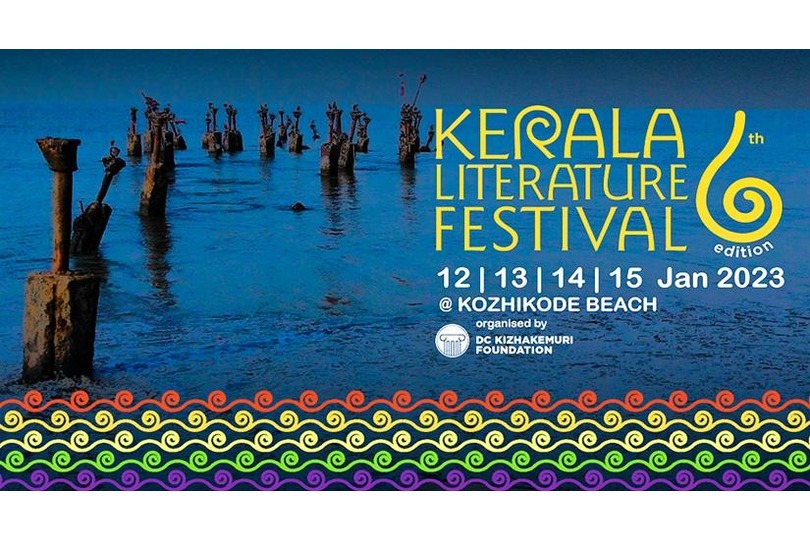Kerala Literature Festival Was Held at Six Different Venues from January 12 to 15
The KLF is that uncommon literary festival that, in a sense, keeps its ears to the ground, as many Malayalam sessions as English sessions were held.on Feb 17, 2023

The Kerala Literature Festival represents a fundamental shift in the lit fest (KLF) concept, which was staged concurrently at six sites around the beach from January 12 to 15. And in a very literal sense because it is hosted on the Kozhikode beach. It could be the pleasant sea air and Kerala's renowned reading culture that elevates its authors to rock stars.
A week earlier, on the last day of the 61st Kerala School Kalolsavam, a fiercely competitive arts festival for schools held in the city, some 24,000 people had attended. The general public was more than ready for this surge of authors, books, and ideas after a COVID-imposed break of two years.
The KLF is that uncommon literary festival that, in a sense, keeps its ears to the ground, as many Malayalam sessions as English sessions were held. The discussions were rigorous, like a public lecture, and intimate, like an adda. People of all ages, notably young people, filled almost every venue. They entered confidently, listened closely, and stayed behind to engage in a pow-wow with the speakers. And, of course, take the inevitable photo with them—a modern tradition that isn't exclusive to literary festivals.
The KLF is that unusual literary event that, in a way, keeps its ears open. There were as many Malayalam sessions as there were English sessions. The talks were intense, like a speech in front of a large crowd, and private, like an adda. Nearly every place was full of individuals of all ages, particularly young people. They showed there with assurance, paid great attention, and remained behind to participate in a pow-wow with the speakers. And, of course, snap the obligatory selfie with them—a contemporary custom that isn't only reserved for literary events.
Minister for Higher Education R. Bindu spoke to the writer Sara Joseph in another session about her novel Budhini. Industries Minister P. Rajeev quizzed the writer K.R. Meera on two of her recent and avowedly most political works of fiction: Qubar and Ghathakan. If this was a litmus test of the connection between literature and politics, and a pointer to the fact that nothing in society, never mind literature, can exist in a political vacuum, it worked splendidly well.
Another pleasant surprise was Jayan Bilathikulam's frieze of paintings, sculptures, and mirrors that covered an entire wall next to the beach. It was a homage to O.V. Vijayan's biting (and scatological!) political satire Dharmapuranam.
And perhaps the most a literary festival can hope to do is to present us with a wide array of concepts from which to pick. This startling diversity is ours to embrace, assist us in finding points of agreement, and start a conversation even when we don't agree.

.jpg)
.jpg)
.jpg)
.jpg)
.jpg)

.jpg)
.jpg)
.jpg)
.jpg)
.jpg)


_(1).jpg)
.jpg)











Sorry! No comment found for this post.